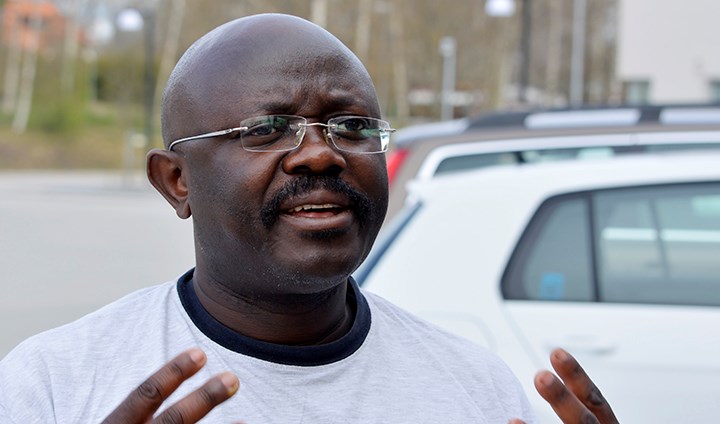Social media providing some ease in authoritarian Uganda

Wairagala Wakabi
Anyone who openly criticises the government in Uganda runs a high risk of being put on trial. But there are less chancy ways of using social media to influence those in power. The possibility of being anonymous provides new opportunities, a new study shows. Wairagala Wakabi is the author of the doctoral thesis in informatics at Örebro University.
“It makes it possible for citizens to call for a certain degree of accountability, for instance when it comes to the lack of medicines in a hospital or why teachers are not punctual at school,” he says.
The thesis takes as its starting point a previously unexplored question: how social media can contribute to raising citizens’ involvement in an authoritarian state, based on the example of Wairagala Wakabi’s native country Uganda.
Yoweri Museveni has been the country’s president for 30 years. In recent years, increasingly strict legislation has been brought in with the aim of silencing the opposition – a way to put down any attempts at discussing for example corruption and abuse of power. The pretence has been that one is dealing with “false information” or defamation of the president. In connection with the election in February this year, social media was blocked completely. The president in office was re-elected for another five years.
Not for direct criticism
Wairagala Wakabi’s study shows that Ugandans do not use Facebook or other platforms for direct criticism of the regime since communication is being surveilled and the risk of reprisals is high.
“But there are low-hanging fruit to pick. You can complain about poor public services, and such complaints are received by people in authority, albeit further down the pecking order, who in turn have to bring them to their superiors,” he says.
This type of criticism and voicing your opinion over such matters is not politically loaded. The possibility to criticise poorly managed public services is therefore significant for Ugandans’ everyday existence, and it may lead to concrete results. It is in the interest of those in power to show that they care about the people, and allow the expression of views and opinions on matters that are not directly threatening their power.
“Social media provides a platform for raising awareness of the way in which society works and that is it possible to question those in power. At the same time, knowledge of how to use information technology is growing,” says Wairagala Wakabi.
Blocking social media in connection with the election led to a strong counter-reaction. Within two days, 1.5 million Ugandans had set up virtual private networks (VPN), a technology making it possible to be active on the Internet without disclosing one’s identity.
Market expanding fast
VPN technology, combined with the possibility to complain about public services, drives the development in Uganda. Wairagala Wakabi also describes how private individuals in Uganda may turn to civil society organisations who in turn are able to act as an intermediary and forward such criticism that is accepted by the regime, thus making it possible for private individuals to remain anonymous.
Access to computers, mobile phones and the Internet is still limited in Uganda. But with prices going down, the market is expanding fast.
“Mobile phones are the future. More and more people have a smartphone which can be used for many things, for example payments. That way, technology is spreading and so is the access to social media,” he says.
Text: Maria Elisson
Translation: Charlotta Hambre-Knight
Photo: Sakher Alattar
